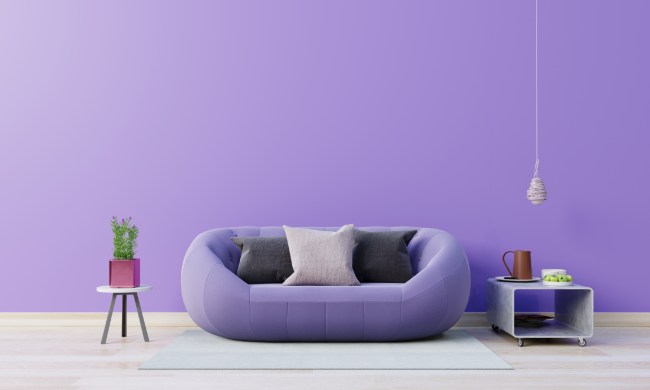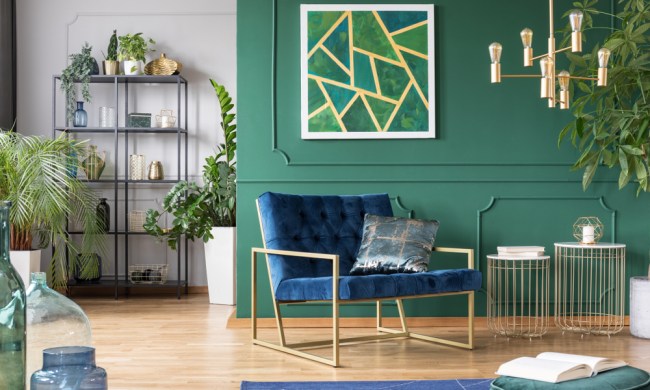Getting a good night’s sleep is critical to your overall physical health and mental well-being. If you lie awake at night next to a snoring partner or frequently wake yourself up snoring, you’re probably not a stranger to looking for any solution that will offer some relief. The good news is there are pillows for snorers as well as other products on the market that can help lessen and even stop snoring altogether.
We enlisted the help of sleep experts to offer their advice on the best products to stop snoring so you can get a restful night’s sleep. But keep in mind, snoring could be the result of a serious medical condition. “If you start waking up feeling unrefreshed and experience excessive drowsiness or lethargy throughout the day, it’s time to see your doctor,” urges Samina Ahmed Jauregui, PsyD, a psychologist in the Division of Pulmonary, Critical Care and Sleep Medicine at University Hospitals in Ohio.
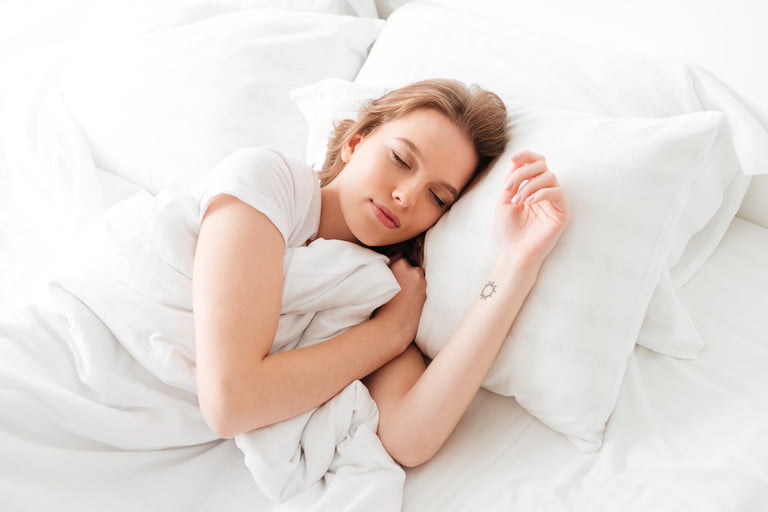
Pillows that help snoring
Alex Savy, a certified sleep science coach and the founder of SleepingOcean.com, recommends the Wedge Pillow by Helix as a way to help curb nighttime snoring. “This pillow can help sleepers remain elevated during the night, which reduces pressure from the airways and sinuses and may alleviate snoring,” he says, adding, that it “can ensure an optimal position throughout the night.” It also uses gel memory foam, which helps prevent night sweats and chills.
Peter Polos, M.D., Ph. D., FCCP, FAASM, and sleep medicine specialist at Sleep Number recommends another anti-snore pillow: the Sleep Number ComfortFit Pillow. It comes with removable inserts that let you individualize your support and height as your sleep needs change.
“Sleeping on your back can make matters worse,” Polos explains, “but elevating your head keeps your tongue from sliding back into the throat and thus keeps the airway open and reduces snoring.”
Finally, placing a body pillow, such as Pluto’s Puff Pillow, behind your back while sleeping on your side will “make sure that even if you roll over on your back in your sleep, you do not lay completely flat on your back,” Jauregui says.
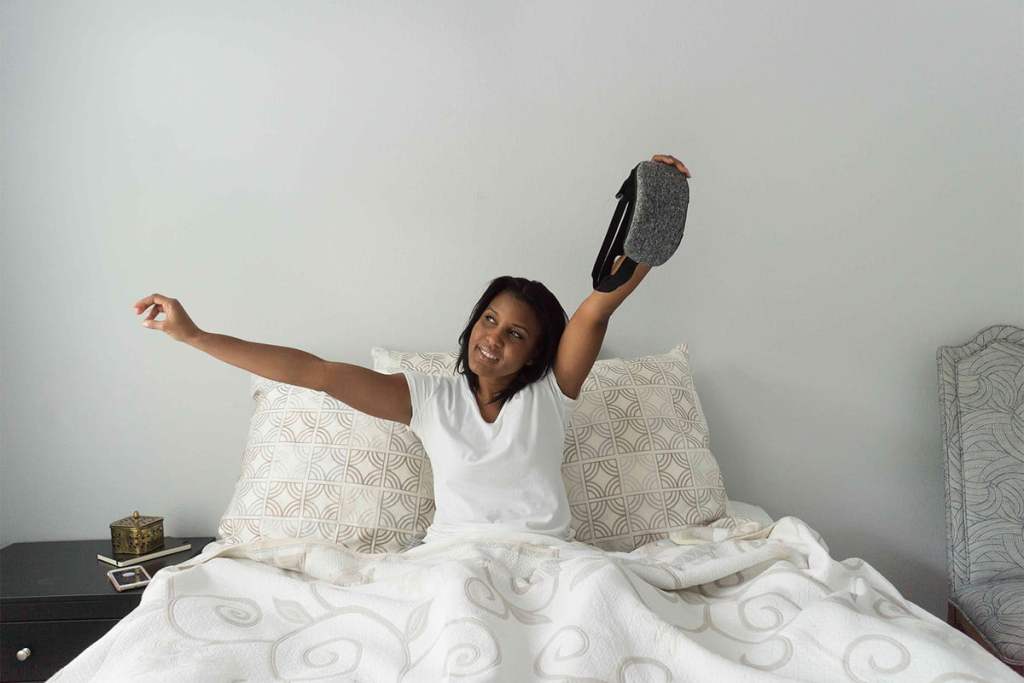
Anti-snoring products that work
Robert Pagano, co-founder of Sleepline, says there are a few products that may help with snoring.
- A nasal dilator. This “is a small device that is inserted into the nose to help keep the airways open.”
- A mouth guard. He also explains that a mouth guard might be useful, as it “helps keep the jaw in place and prevents the tongue from falling back and blocking the airways.”
- A throat spray. Another option “is an over-the-counter throat spray, which helps moisten the throat and prevent it from drying out and becoming congested.”
One mouth guard Savy recommends is Mouthpiece by VitalSleep, which is “designed to help open the airways by keeping the lower jaw in a stable position and moving the tongue forward. It’s also worth mentioning that this model uses a special material that molds to the shape of the sleeper’s teeth.”
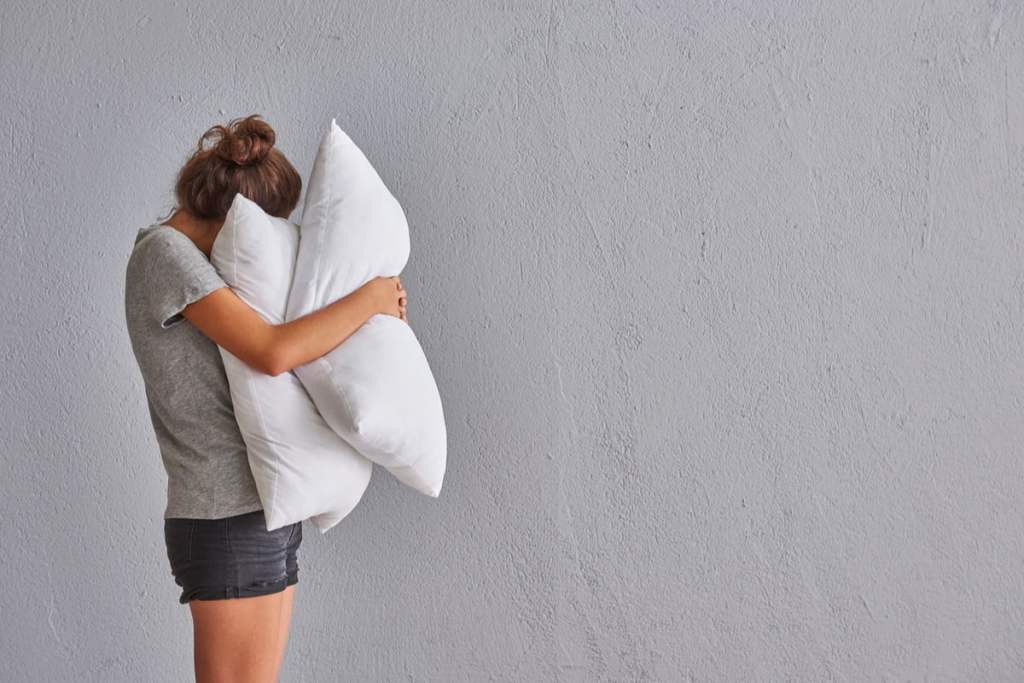
Any advice for those who co-sleep with a snorer?
“Snoring is one of the biggest habits that affect partners and their sleep,” says Bridget Chapman, a certified sleep science coach and lead reviewer at Sleepopolis. Her advice is to try to go to bed before your partner so that your chances of staying asleep increase. “For lighter sleepers who wake during the night to snoring, it is recommended to try sleeping with headphones/music, earplugs, or white noise to counteract the snoring and place the brain on a different sound,” she says.
If this doesn’t work, it may be time to take more aggressive action, says Marten Carlson, a certified sleep science coach and lead reviewer at Mattress Clarity. “If none of these do the trick, the last resort is for each partner to sleep in separate rooms. This isn’t ideal but can ensure each partner gets the rest that they need.”
Your health depends on a good night’s sleep, and while many of these products work for occasional snorers, you’ll want to get to the bottom of why you snore. “Snoring is among the most common reasons behind ruined sleep,” Savy explains. “One of the best ways to reduce snoring is to figure out its main cause. Snoring may occur when the sleeper is overweight, consumes alcohol before bed, sleeps on their back, suffers from sleep apnea, has large tonsils,” and more. “Because there are multiple potential causes of snoring, it is crucial to figure out what exactly sleepers are dealing with if they want to find a truly effective solution.”
This may mean getting tested for sleep apnea, which can be resolved via surgery or by using a CPAP machine, but only your doctor will be able to give you definitive answers.

